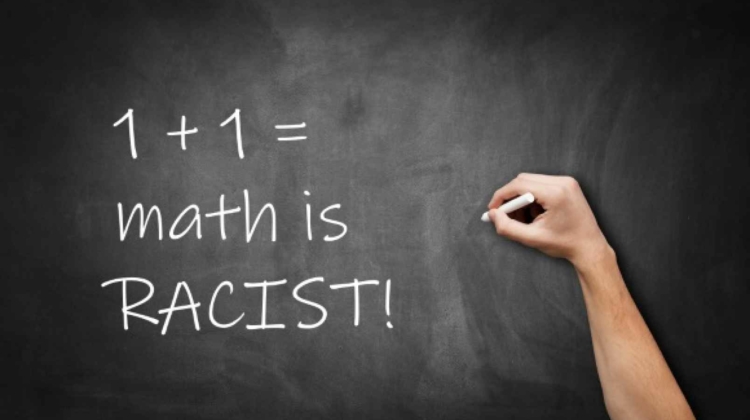
In a February 2021 [bulletin](https://content.govdelivery.com/accounts/ORED/bulletins/2bfbb9b?fbclid=IwAR3U8iS7fCD-g0NArQh74qlRa5IVFiTXoithZA89kMvmD0DETmzcV9DuQdg) sent out by the Oregon Department of Education, just below a feature on Black History Month, is a notice announcing a “micro-course” for educators titled “A Pathway to Math Equity.” The course promises to provide educators with “key tools for engagement [and] strategies to improve equitable outcomes for Black, Latinx, and multilingual students” and knowledge on how to “dismantle racism in mathematics instruction.”
One might well ask, how can math—which more than any other subject deals in the realm of pure logic—possibly be racist? The [“toolkit”](https://equitablemath.org/wp-content/uploads/sites/2/2020/11/1_STRIDE1.pdf) provided as a resource for the first course session is happy to answer this question.
“We see white supremacy culture show up in the mathematics classroom even as we carry out our professional responsibilities” explains the guide. Educators must therefore take on the responsibility for “visibilizing the toxic characteristics of white supremacy culture with respect to math.”
These “toxic characteristics” include basic academic principles such as:
_The focus is on getting the “right” answer.
Teachers are teachers and students are learners.
Independent practice is valued over teamwork or collaboration.
Students are required to “show their work.”
Grading practices are focused on lack of knowledge.
“Real-world math” is valued over math in the real world.
Students are tracked (into courses/pathways and within the classroom).
Participation structures reinforce dominant ways of being._
The toolkit goes on to state that “The concept of mathematics being purely objective is unequivocally false, and teaching it is even much less so. Upholding the idea that there are always right and wrong answers perpetuate objectivity as well as fear of open conflict.”
The course also contains numerous suggestions for educators who want to fight racism in their math classrooms. These include:
_Adapt homework policies to fit the needs of students of color._
_Expose students to examples of people who have used math as resistance. Provide learning opportunities that use math as resistance._
_Identify and challenge the ways that math is used to uphold capitalist, imperialist, and racist views._
The course materials repeatedly echo the tropes of critical race theory, insisting that “only white people can be racist in our society, because only white people as a group have that power.” Another section of the workbook asserts that “In some cases, the prejudices of oppressed people (‘you can’t trust the police’) are necessary for survival.”
If Oregon’s educational bureaucrats truly want to improve the education of African-American students, this racist exercise in lowering expectations and subverting classroom norms is a dismal place to start.

